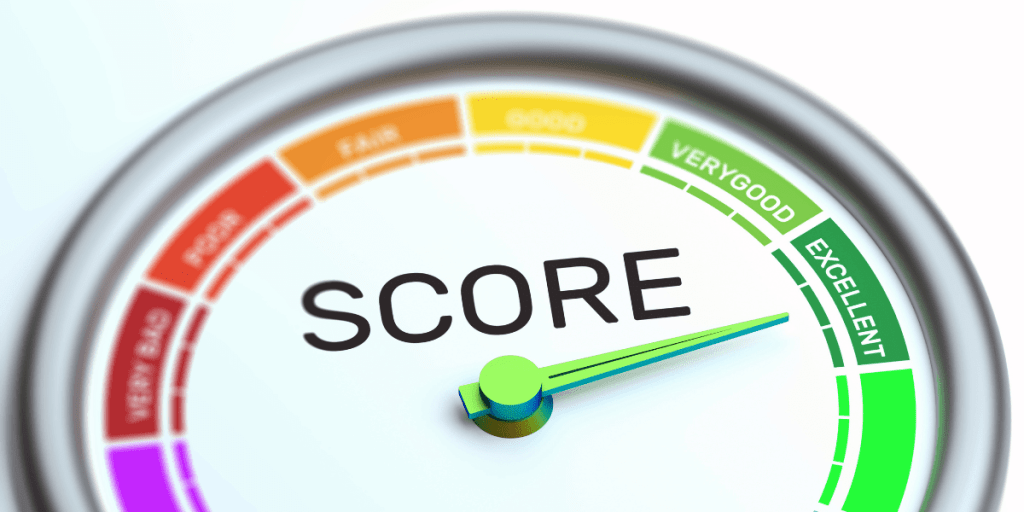In today’s financial landscape, having a good credit score is akin to holding a key to a treasure trove of opportunities. Whether it’s to qualify for a mortgage, secure a loan with favorable terms, or even influence job prospects, your credit score wields significant influence over many aspects of your life. Acknowledging its importance is the first step towards unlocking financial freedom. In this comprehensive guide, I will walk you through the seven proven steps to improve your credit score and, by extension, enhance your financial well-being.
The Importance of a Good Credit Score
Why Your Credit Score Matters
A good credit score can be the gateway to financial stability and success. It’s a crucial factor that lenders use to determine your creditworthiness, and it affects not only the likelihood of being approved for credit but also the interest rates you’ll be offered. A higher score could mean lower interest rates, resulting in significant savings over time. But it goes beyond borrowing; a good credit score can influence rental agreements, insurance premiums, and even employment opportunities.
The Cost of a Poor Credit Score
Conversely, a poor credit score can be costly. It can lead to high interest rates, which compound over time, making everything from credit cards to mortgages more expensive. In some cases, it might mean being denied credit altogether. This can create a vicious cycle where it becomes increasingly difficult to improve your financial situation.
The Power of Improving Your Score
Improving your credit score can seem daunting, but the benefits are undeniable. It opens doors to better financial products, can provide peace of mind, and is a testament to your financial responsibility. It’s about more than just numbers—it’s about the freedom and opportunities a good credit score affords.
Understanding How Credit Scores Are Calculated
The Five Key Components
Your credit score is a numerical representation of your credit risk, and it’s primarily based on information from your credit reports. The most common scoring model, FICO, considers five main components: payment history (35%), amounts owed (30%), length of credit history (15%), new credit (10%), and credit mix (10%). Each of these plays a role in the calculation of your score, and understanding them is crucial for making informed decisions about your credit.
The Role of Credit Bureaus
Credit bureaus, such as Experian, Equifax, and TransUnion, collect and maintain the information that forms your credit reports. These reports serve as the basis for your credit score. It’s important to recognize that each bureau may have slightly different information, which can lead to variations in your score across the different bureaus.
How Your Actions Impact Your Score
Every financial decision you make, from paying bills to applying for a new credit card, can impact your credit score. Timely payments can bolster your score, while missed payments can cause it to plummet. High balances relative to your credit limits can also hurt your score. Understanding the weight of your financial actions is key to managing your credit score effectively.
Step 1: Check Your Credit Report for Errors
How to Obtain Your Credit Reports
You’re entitled to a free copy of your credit report from each of the three major credit bureaus once every 12 months, thanks to the Fair Credit Reporting Act. You can request these reports through AnnualCreditReport.com. This is the first crucial step because you need to know what you’re working with before you can improve it.
Identifying and Disputing Errors
Once you have your credit reports, scrutinize them for inaccuracies. Look for mistakes such as incorrect personal information, accounts that don’t belong to you, or incorrect account statuses. If you find errors, dispute them with the respective credit bureau. They are legally required to investigate and correct any inaccuracies.
The Impact of Correcting Errors
Removing errors from your credit report can have an immediate and positive effect on your credit score. It’s not uncommon for credit reports to contain mistakes, and correcting these can provide a quick boost to your score. Be thorough and persistent; this step alone can make a significant difference.
Step 2: Pay Your Bills on Time
The Importance of Payment History
Payment history is the most significant factor in your credit score. Lenders want to see a track record of on-time payments, as this indicates you’re a reliable borrower. Even a single late payment can negatively impact your score, so it’s essential to pay all your bills on time, every time.
Setting Up Reminders and Automated Payments
To ensure you never miss a payment, set up reminders or enroll in automatic payments. Many creditors offer the option to automatically withdraw your payment on the due date. This can help you avoid accidental late payments and the subsequent fees and credit score damage.
Handling Past Due Accounts
If you have past-due accounts, prioritize bringing them current. The longer an account remains delinquent, the more it can hurt your credit score. Contact your creditors to discuss your options. They might be willing to work out a payment plan or even re-age your account, which can help mitigate the damage to your credit score.
Step 3: Reduce Your Credit Card Debt
Understanding Credit Utilization
Credit utilization, or the amount of credit you’re using compared to your credit limits, is a critical factor in your credit score. It’s recommended to keep your credit utilization below 30% on each card and across all cards. High utilization can signal to lenders that you’re overextended and may have trouble managing your debts.
Strategies for Paying Down Debt
There are various strategies for paying down credit card debt. The debt snowball method involves paying off the smallest debts first, while the debt avalanche focuses on paying down debts with the highest interest rates. Choose a method that aligns with your financial situation and stay consistent with your payments.
The Benefits of Lower Debt Levels
Reducing your credit card debt not only improves your credit utilization but also decreases the amount of interest you pay. It can free up credit for future needs and demonstrate to lenders that you’re responsible with credit. Over time, lower debt levels contribute to a higher credit score and greater financial freedom.
Step 4: Increase Your Credit Limits
Requesting Higher Credit Limits
If you’ve been a responsible credit user, consider asking your creditors for a higher credit limit. This can instantly lower your credit utilization ratio, as long as you don’t increase your spending. Most credit card issuers allow you to request a credit limit increase online or by phone.
The Potential Risks of Higher Limits
While higher credit limits can be beneficial for your credit score, they also come with the temptation to spend more. It’s crucial to maintain discipline and not use the increased limit as an excuse to accumulate more debt. Keep your spending in check to ensure that the higher limit works in favor of your credit score.
The Timing of Credit Limit Increases
The best time to request a credit limit increase is when you’ve demonstrated a history of on-time payments and responsible credit use. If your income has increased since you received your card, or if you’ve seen a recent improvement in your credit score, those are also good times to ask for an increase.
Step 5: Diversify Your Credit Mix
The Different Types of Credit
Credit mix refers to the variety of credit accounts you have, including credit cards, installment loans, mortgages, and auto loans. Lenders like to see that you can handle different types of credit responsibly. While it’s not as significant as payment history or credit utilization, a diverse credit mix can still positively affect your credit score.
Adding New Forms of Credit Wisely
If your credit report is heavy on one type of credit, consider diversifying. For example, if you only have credit cards, you might want to take out a small personal loan or an auto loan if you need it. However, it’s important to do this wisely; only take on new credit if it makes financial sense for you and you can manage it responsibly.
The Importance of Managing New Credit
Adding new credit can initially lower your credit score due to the hard inquiry and the new account lowering your average account age. But over time, as you make on-time payments and show responsible use, it can improve your score. Always be mindful of your ability to manage and pay back any new credit you take on.
Step 6: Don’t Close Old Credit Accounts
The Age of Your Credit History
The length of your credit history accounts for 15% of your credit score. Closing old credit accounts can shorten your credit history, especially if they’re your oldest accounts. A longer credit history can contribute to a higher credit score because it provides more data on your long-term financial behavior.
The Impact on Credit Utilization
Closing credit accounts can also increase your credit utilization ratio since you’ll have less available credit. Even if you don’t use those old accounts regularly, keeping them open can help maintain a lower utilization rate, which is beneficial for your credit score.
The Strategy for Unused Accounts
If you have old, unused accounts, instead of closing them, consider using them for small, regular purchases that you can pay off in full each month. This will keep the account active, contribute positively to your payment history, and help maintain your credit score.
Step 7: Monitor Your Credit Score Regularly
The Importance of Regular Monitoring
Regularly checking your credit score and report allows you to track your progress and identify any issues quickly. Many credit card companies and financial institutions offer free credit score monitoring services. Take advantage of these tools to stay informed about your credit status.
Dealing with Identity Theft and Fraud
Monitoring your credit can also help you catch signs of identity theft or fraud early. If you notice unusual activity, you can take action immediately to prevent further damage. This includes reporting the activity, freezing your credit, and disputing fraudulent transactions.
Adapting Your Credit Improvement Strategy
As you monitor your credit, you may find that certain strategies are more effective for you than others. Use this information to adapt your approach and continue making positive changes to your credit score. It’s a dynamic process, and staying engaged is key to success.
Conclusion
Improving your credit score is a journey that requires patience, discipline, and strategic financial management. By following these seven proven steps to improve your credit score, you can pave the way to greater financial freedom and opportunities. Remember, it’s not just about reaching a number; it’s about establishing and maintaining financial habits that will benefit you throughout your life. Stay vigilant, stay informed, and most importantly, stay committed to your financial goals. With time and effort, you’ll see your credit score and financial prospects rise.










